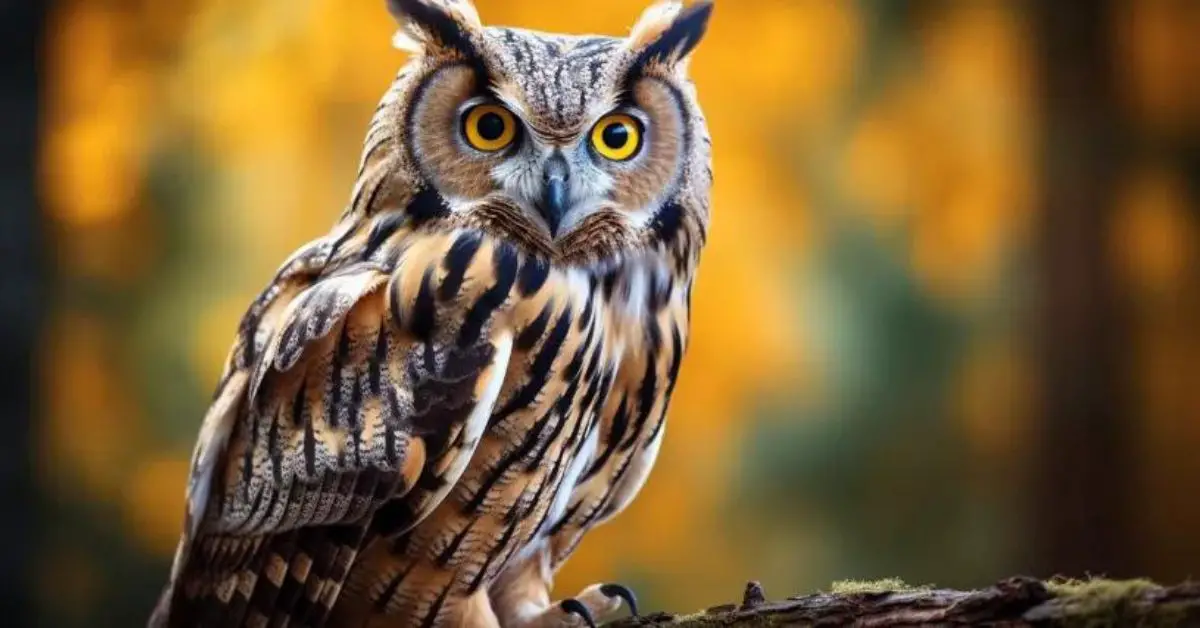In the Bible, owls are mentioned a few times, primarily in the Old Testament. These references are mostly in the context of describing the desolation of a place. For example, owls are listed among other wild animals in passages that depict abandoned or desolate areas.
In Leviticus and Deuteronomy, owls are mentioned in the lists of unclean animals, indicating that they were not to be eaten by the Israelites. The portrayal of owls in these contexts does not carry any specific theological significance but rather serves to illustrate certain conditions or laws within the narratives.
It’s important to note that these references reflect the cultural and environmental context of the times and are not indicative of a broader spiritual symbolism of owls in the Bible.
Interested in how owls are portrayed in the Bible? Explore the passages where these creatures are mentioned and the context of these references.
What Does the Bible Say About Owls?
Owls in the Bible are mentioned primarily in the Old Testament and are often used to describe desolation or to list unclean animals. Their presence in the scriptures is not extensive and does not carry significant spiritual symbolism.
In several instances, owls are mentioned alongside other wild animals in descriptions of desolate and abandoned places. These references are often used to create a vivid picture of loneliness, desolation, or divine judgment. For instance, in the prophetic books, the presence of owls and other wild animals is used to illustrate the aftermath of God’s judgment on nations or cities.
In the books of Leviticus and Deuteronomy, owls are listed among the unclean birds, which the Israelites were forbidden to eat. This classification reflects the dietary laws of the time and the cultural view of certain animals. The mention of owls in this context is more about adhering to the purity laws than about the birds themselves.
It is important to recognize that these mentions of owls reflect the environmental and cultural context of the biblical times. Unlike some other animals in the Bible that carry specific symbolic meanings, owls are not portrayed as having any particular theological significance. They are more a part of the natural landscape and the laws that governed the Israelites.
In summary, the biblical references to owls are few and are used either to depict desolation or to list them as unclean animals. These references are situational and do not ascribe any broader spiritual meaning to owls.
Bible Verses About Owls
- Leviticus 11:13-19: “These are the birds you are to regard as unclean and not eat because they are unclean: the eagle, the vulture, the black vulture, the red kite, any kind of black kite, any kind of raven, the horned owl, the screech owl, the gull, any kind of hawk, the little owl, the cormorant, the great owl, the white owl, the desert owl, the osprey, the stork, any kind of heron, the hoopoe and the bat.” Owls are listed here among other birds considered unclean for consumption.
- Isaiah 34:11: “The desert owl and screech owl will possess it; the great owl and the raven will nest there. God will stretch out over Edom the measuring line of chaos and the plumb line of desolation.” Owls are used here to illustrate the desolation of Edom after God’s judgment.
- Jeremiah 50:39: “So desert creatures and hyenas will live there, and there the owl will dwell. It will be inhabited no more forever; neither will it be dwelt in from generation to generation.” Again, the owl is used to symbolize the complete desolation of Babylon.
- Psalms 102:6: “I am like a desert owl, like an owl among the ruins.” The psalmist uses the imagery of an owl to express loneliness and desolation.
- Micah 1:8: “Because of this I will weep and wail; I will go about barefoot and naked. I will howl like a jackal and moan like an owl.” In this verse, the prophet Micah uses the imagery of an owl’s moan to express deep sorrow and lamentation.
- Job 30:29: “I am a brother to dragons, and a companion to owls.” Here, Job uses the imagery of being a companion to owls, among other desolate creatures, to describe his state of misery and alienation.
- Isaiah 13:21: “But wild beasts of the desert shall lie there; and their houses shall be full of doleful creatures; and owls shall dwell there, and satyrs shall dance there.” This verse describes the desolation of Babylon, where owls and other wild creatures will inhabit the ruins.
- Zephaniah 2:14: “Flocks shall lie down in her midst, all the beasts of the nations; both the cormorant and the bittern shall lodge in the upper lintels of it; their voice shall sing in the windows; desolation shall be in the thresholds: for he shall uncover the cedar work.” This verse, in its depiction of desolation, includes imagery of birds like the cormorant and bittern, similar in context to the owl’s symbolic use.
- Leviticus 11:17-18: “And the little owl, and the cormorant, and the great owl,” reiterates the classification of owls among unclean birds in Levitical law.
- Deuteronomy 14:16: “The little owl, and the great owl, and the swan,” is another verse that lists owls as unclean birds, similar to Leviticus 11.
These verses collectively showcase how owls are used in the Bible, primarily as symbols of desolation and loneliness or as part of the lists of unclean animals in the Mosaic Law. Their presence in these contexts helps to paint a vivid picture of the scenes being described, whether it be a lamentation, a portrayal of desolation, or adherence to purity laws.


